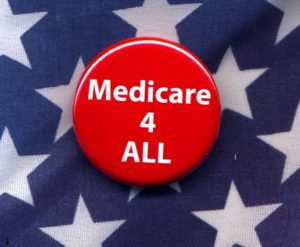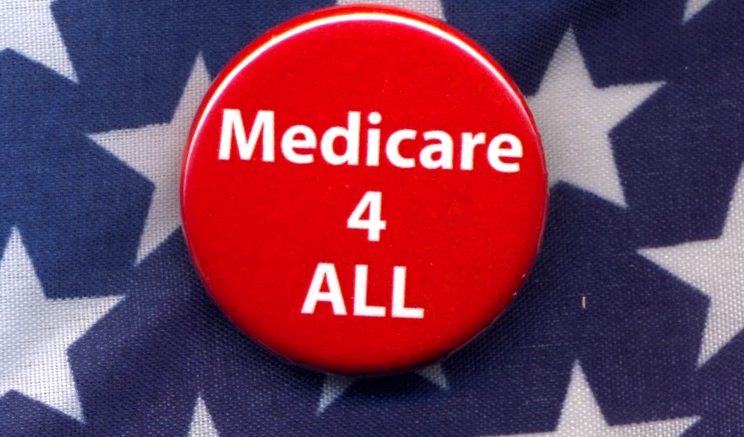
Common Dreams (2/15/20)
Sen. Bernie Sanders on Saturday applauded a new study published today by a team of epidemiologists in the peer-reviewed medical journal The Lancet, which found that Medicare for All will save Americans $450 billion and prevent 68,000 unnecessary deaths each and every year.
“This study confirms that Medicare for All will save the American people $450 billion on health care costs and will prevent 68,000 unnecessary deaths – each and every year,” Sanders said. “In other words, guaranteeing health care as a human right by creating a Medicare for All system will cost substantially less than our current dysfunctional health care system. It will save working class families thousands of dollars and it will prevent tens of thousands of Americans from dying each year. While the CEOs in the pharmaceutical and health insurance industry may not like it, we will end their greed and enact Medicare for All when I am president.”
19 out of 22 studies done over the past 30 years concluded that moving to a Medicare for All, single-payer health care system would cost less than our current health care system in the first year, and all of the studies showed that it would cost less within a decade of implementation.
According to the study, by replacing premiums, deductibles, co-payments and out-of-pocket costs with a progressive tax system, Medicare for All will save the average family thousands of dollars each year and will provide lower-income households the greatest relief.
Struggling hospitals serving low-income communities would be particularly helped by Medicare for All by eliminating uncompensated care, increasing Medicaid reimbursement rates to Medicare levels, and reducing administrative overhead, according to the study.
Large savings in cost and time
The study also debunks several attacks on Medicare for All from the private health care industry that made well over $100 billion in profits last year. Doctors and hospitals would see large savings in cost and time from streamlining our bloated and inefficient administrative and billing system, allowing doctors to spend more time with patients, the study found.
The study is the latest in a series of studies conducted over the past three decades that have found that guaranteeing universal health care through a single-payer health care system would not only dramatically improve the health and well-being of the American people, it would cost less than our current dysfunctional health care system that puts profits over people.
Last month, another medical journal found that 19 out of 22 studies done over the past 30 years concluded that moving to a Medicare for All, single-payer health care system would cost less than our current health care system in the first year, and all of the studies showed that it would cost less within a decade of implementation.
(Our work is licensed under a Creative Commons Attribution-Share Alike 3.0 License. Feel free to republish and share widely.)
- ‘The Lancet’: Improving The Prognosis Of Health Care In The USA — Although health care expenditure per capita is higher in the USA than in any other country, more than 37 million Americans do not have health insurance, and 41 million more have inadequate access to care. Efforts are ongoing to repeal the Affordable Care Act which would exacerbate health-care inequities. By contrast, a universal system, such as that proposed in the Medicare for All Act, has the potential to transform the availability and efficiency of American health-care services. Taking into account both the costs of coverage expansion and the savings that would be achieved through the Medicare for All Act, we calculate that a single-payer, universal health-care system is likely to lead to a 13% savings in national health-care expenditure, equivalent to more than US$450 billion annually (based on the value of the US$ in 2017). The entire system could be funded with less financial outlay than is incurred by employers and households paying for health-care premiums combined with existing government allocations. This shift to single-payer health care would provide the greatest relief to lower-income households. Furthermore, we estimate that ensuring health-care access for all Americans would save more than 68 000 lives and 1·73 million life-years every year compared with the status quo. Link To Story

